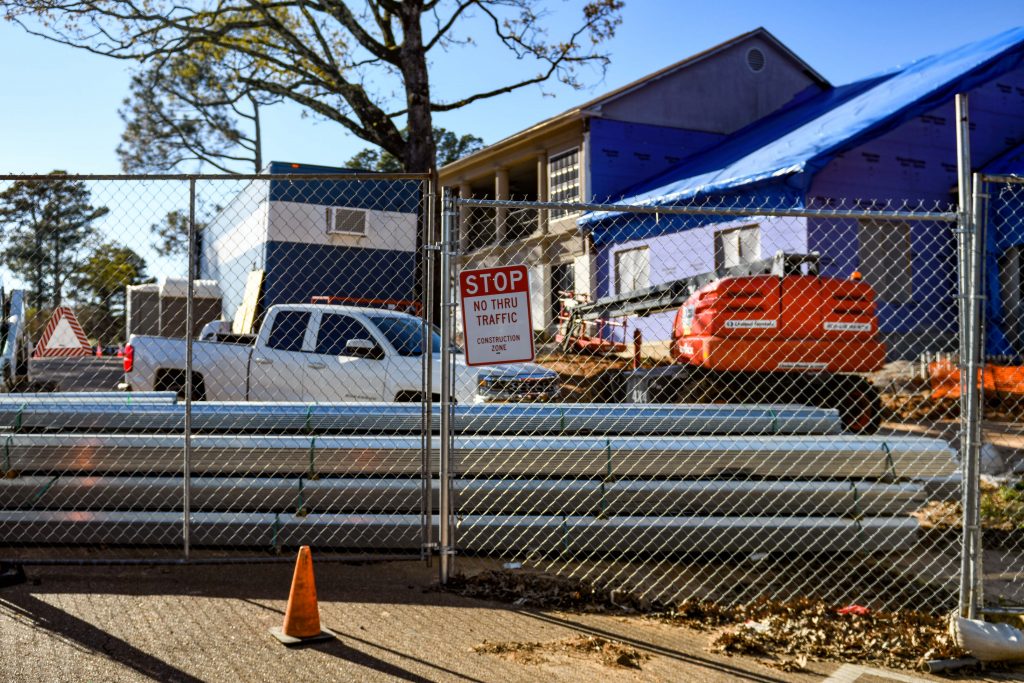Many of Mississippi’s more than 25,000 state employees will get a 3% pay raise under an agreement reached between House and Senate leaders as they work to finalize a budget this week and conclude the 2021 legislative session.
Under the same agreement, faculty and staff at the eight public universities and 15 community colleges could receive at least a 1% raise.
Many of the details of the roughly $6.2 billion state support budget have not yet been worked out, and legislative leaders were still meeting late Sunday to finalize next year’s budget.
The pay raise agreements reached by legislative leaders — made possible after higher-than-expected state revenue collections last year and an influx of cash from federal stimulus packages — must be approved by both chambers of the Legislature.
Senate Appropriations Chair Briggs Hopson, R-Vicksburg, explained that money was set aside — about $13.9 million in general fund revenue — to begin the salary increase for state employees at the start of the new calendar year on Jan. 1 rather than the start of the new fiscal year on July 1. Delaying the pay raise by half a fiscal year will reduce the cost of the pay raise for the first year of its enactment.
The leaders also reached an agreement to set aside enough funds to provide faculty and staff at the state’s eight public universities and 15 community colleges at least a 1% raise starting with the new fiscal year on July 1.
The higher ed raises, though, will be awarded at the discretion of the leadership of the universities and community colleges. The institutions’ leaders can use the funds to provide across the board 1% pay raises or target the funds to provide a salary increase of up to 5% for specified employees.
Hopson said the flexibility would allow institution leaders to reward employees who they want to make an extra effort to keep on staff. It is possible that not every higher ed employee will receive a raise.
House Appropriations Chair John Read, R-Gautier, told members Sunday afternoon that there was not yet an agreement on the entire budget “at this point in time, although I do see a light at the end of the tunnel. I just do not know how long that tunnel is right now.”
But Read and Hopson both told their colleagues that there was agreement on the pay raise for state employees and higher ed employees in addition to the $1,000 per year pay raise for public school teachers agreed to earlier this session.
Even though Mississippi’s K-12 teachers and most state employees received salary increases in 2019, the state still lags the nation the contiguous states in pay for public school teachers and for state employees.
According to the Mississippi Personnel Board, for instance, the average pay for state employees is $39,896 per year compared to the average for the four adjoining states of $49,392. Additionally, Mississippi’s average pay for K-12 teachers is the lowest of any state in the nation.
“I am glad to see we are addressing some of the deficiencies we have had for some of the agencies that have been working with underfunded budgets the last couple of years,” said Rep. Robert Johnson, D-Natchez, the House minority leader. “In addition, I am glad we are giving at least a nominal pay raise for state employees.”
Johnson and other Democrats and Legislative Black Caucus members have in recent days reiterated their call for expanding Medicaid to provide health care to as many as 300,000 primary working Mississippians.
On Sunday, the Legislature voted to expand Medicaid for some inmates so that the federal government instead of the state would pay the cost of their health care, but the Republican legislative leadership continues to refuse to consider an overall expansion of the federal-state health care program.
“I do not understand it,” Johnson said. “We are expanding it for prisoners, but not for working people. I am for doing it for both.”
















